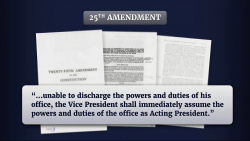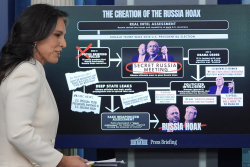South Korea’s new leadership sees AI as a tech upgrade and a catalyst to redefine work, governance, and national purpose grounded in ethics, human dignity, and strategic sovereignty.
South Korea stands at the cusp of a transformation. It is not merely a digital one but something deeper and more consequential: the redefinition of work, governance, and national purpose in the age of AI. With the election of President Lee Jae-myung and a historic parliamentary majority behind the Democratic Party, the incoming administration has a rare and fleeting window to set the tone for Korea’s future, not just as a fast follower but as a first mover in the global AI race.
But first, we must answer a more elemental question: What role should AI play, not just in the economy but also in the democracy and public institutions, and how does one define the value of human work?
South Korea’s Employment Future Depends on AI
When Shopify’s CEO Tobi Lütke declared that “no new job can be posted unless AI has tried it first,” it felt like a line in the sand. Far from a cost-cutting gimmick, this was a philosophical wager: AI isn’t here just to replace jobs but to interrogate them.
Why does this role exist? What value does it create? If AI can do it, should it be done at all?
This provocation, imported from Silicon Valley, forces us to rethink the very scaffolding of labor. Are we building organizations on purposeful, creative, high-leverage work, or are we still shoring up bureaucratic redundancies?
In South Korea, a nation with one of the highest automation rates in the world and a rapidly aging population, these questions are not abstract. They are urgent. But rather than treating AI as a threat to jobs, we should see it as a magnifying lens, amplifying human excellence where it matters most, and casting light on the work that perhaps should never have existed.
AI Will Improve South Korea’s Job Market
Let’s be clear. AI can accelerate processes, summarize meetings, scrape massive datasets, and draft first-draft legislation, and it does not make a judgment.
It cannot sense the moral edge cases. It cannot feel the political winds shift. It cannot see around the corner. In public affairs, government relations, and policy making where timing, tact, and context are everything, AI alone cannot carry the weight.
This is especially true in Korea, where policymaking is often less a matter of process and more of choreography. Relationships, narrative, and national values guide the agenda, far more than data dashboards ever could. In such an environment, AI becomes not the final word but a mighty co-pilot. It is the assistant, not the strategist. It can sketch the map, but not choose the destination.
What Can AI Do to Improve South Korea?
We live in a time of exponential information and exponential confusion. In this world, the value of discernment, of being able to interpret noise, navigate ambiguity, and sense what matters, has never been higher.
AI can monitor legislation, track stakeholder sentiment, and run predictive analytics. However, someone must still understand the political culture and its unspoken taboos, interpret policy shifts’ legal and diplomatic nuances, build coalitions behind the scenes, make ethical decisions when the algorithm shrugs, and be accountable when the bet goes wrong.
This is the work of real public affairs, of authentic policy craftsmanship. And it cannot be outsourced to GPT-40 or GPT-4.
To be fair, AI is already transforming how we practice public affairs. Predictive analytics flags legislative risks before they become headlines. Stakeholder mapping tools could even identify the hidden influencers behind major policy moves. AI-generated messaging offers quick-fire draft speeches or social copy for ministers and officials. Sentiment analysis tools track shifting public moods across media platforms in real time.
But here’s the catch. None of these tools can explain why a policy was introduced, what the opposition plans behind closed doors, or how to shift the Overton window. That requires human presence, trust, and intuition, the oldest and most irreplaceable assets in public and government affairs.
Korea Must Decide If It Will Embrace AI or Not
The 2024 general election gave President Lee Jae-myung something no Korean president has had in decades: breathing room.
With a commanding majority in the National Assembly, there’s now a genuine chance to craft long-term, ambitious policy, not just the short-term firefighting that’s plagued past administrations.
This is the moment to launch a national AI strategy that isn’t just about industrial policy or R and D budgets, but about national identity. Korea must ask: Who do we want to be in the AI age? A supplier of semiconductors to the world’s AI powers? Or a sovereign architect of digital norms, ethics, and democratic innovation?
To seize this opportunity, the Lee administration should ground its AI vision in human dignity, democratic resilience, and strategic clarity.
That means: First, embedding AI ethics into public governance. Like America’s Executive Order on AI and the EU’s AI Act, Korea should lead in building regulatory guardrails, not as a constraint on innovation but as its foundation. Transparency, auditability, and explainability should be mandated for all public-sector AI applications.
Second, a serious investment must be made in the AI transition layer and human-AI augmentation. Korea’s future jobs will not be AI-proof; they will be AI-powered. We need a workforce that can interpret, audit, and creatively leverage AI, not just code it. Government-backed reskilling programs should focus on hybrid roles that combine policy acumen with AI fluency.
Third, we need to rethink or reframe public policy and advocacy as a future-proof profession. Government affairs are often maligned as opaque or transactional, but in the age of AI, they may become one of the last bastions of uniquely human judgment. Korea’s public affairs sector should be strengthened, not sidelined, in the name of automation.
Lastly, the new administration needs to start building sectoral AI blueprints. Korea should develop sector-specific AI transition plans that balance innovation with equity from agriculture to education to healthcare. These blueprints should be crafted with civil society, industry, and international partners, not behind closed doors.
AI Will Strengthen South Korea’s Democracy
Today, tech companies wield enormous influence over data, algorithms, and even access to lawmakers. That asymmetry is unsustainable. If left unchecked, we risk drifting into an AI oligarchy, where governance is driven by the few, for the few, under the guise of innovation.
Korea has a different path to chart. With its digital infrastructure, high-speed networks, and globally admired public service institutions, it can show how democratic innovation can outpace both authoritarian tech centralism and laissez-faire techno-nihilism.
But doing so requires boldness. It requires a public-private ethos that is neither anti-tech nor blindly pro-tech but strategically sovereign. One that says yes to AI, but on our terms. One that acknowledges AI’s immense utility while doubling down on the irreplaceable value of human vision.
Public policy is not just about passing laws. It’s about setting norms, aligning incentives, and telling a shared story about who we are becoming. As the future of work reshapes every industry, Korea’s policy community must lead this conversation.
The future of policy making and advocacy will not be about writing AI prompts. It’s about defining purpose, asking the hard questions before the code is written, and knowing when not to delegate. Indeed, the AI revolution may make public and government affairs more critical, not less so. When every organization has access to the same algorithms, the differentiator becomes interpretation, judgment, narrative, and, most importantly, relationship.
Let us not frame the AI age as one of extinction or escape. Let us see it as a canvas on which we can sketch a more meaningful, human-centered economy where AI handles the noise so humans can focus on the signal. Shopify’s “AI-first pass” is a compelling metaphor, not for job loss but for clarity.
What matters? What doesn’t? What is worthy of human time?
This is the defining question of our time for government, business, and policy specialists in Korea and beyond. AI will not make us obsolete, but it will make us choose to hide behind algorithms or lead with purpose. South Korea has the tools, talent, and mandate. With this new administration, it now has the mandate.
Let’s use it wisely.
About the Author: Schoni Song
Schoni Song is Junior Partner and Global Business Lead at Macoll Consulting Group, Korea’s premier public and government affairs consultancy, where he advises Fortune 500s and global nonprofits on how to win influence and shape policy in one of Asia’s most dynamic markets. With a sharp eye for power dynamics and a track record across chemicals, crypto, defense, and global development, he crafts strategies that move decision-makers and shift narratives. Schoni also serves as Co-Chair of the Chemical Committee at AMCHAM Korea, and has served at the US State Department’s INL bureau, the Korean National Assembly, and the Asia Society. He holds a BA from Yonsei University and an MA from Columbia University’s School of International and Public Affairs. Opinions are his own.
Image Credit: Shutterstock.
















